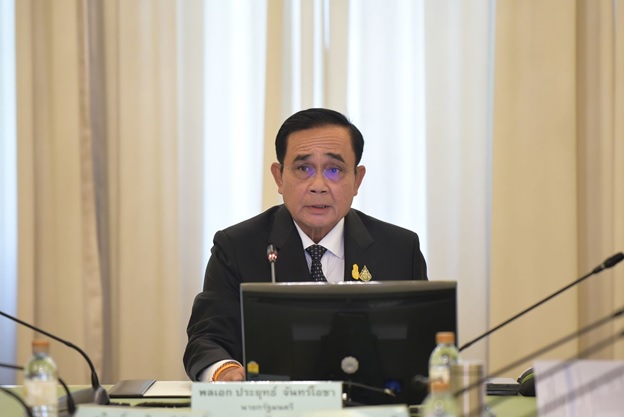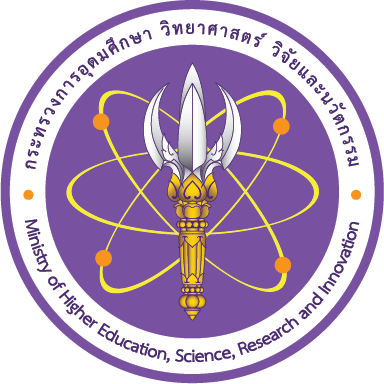8 June 2020. Dr. Suvit Maesincee, Minister of Higher Education, Science, Research and Innovation (MHESI) brought a team of eight top executives representing industries, entrepreneurs, academia, government agencies and people sector to meet Prime Minister General Prayut Chan-o-cha to discuss the use of Bio-Circular-Green Economic (BCG) Model to drive the national agendas which include food security, public health security, energy security, job security, environmental sustainability, as well as social inclusiveness.

Following the assignment given to MHESI by Prime Minister Prayut to accelerate the implementation of BCG model, MHESI has organized a brainstorming session with all stakeholders with the goal to strengthen local economy. The brainstorming exercise was conducted in seven areas, each of which was chaired by a respected expert, namely 1) agriculture chaired by Veterinarian Yukol Limlamthong, 2) food chaired by Mr. Thiraphong Chansiri, 3) drug and vaccine chaired by Clinical Prof. Emeritus Piyasakol Sakolsatayadorn, 4) medical device chaired by Prof. Dr. Pairash Thajchayapong, 5) bioenergy, biomaterial and biochemical chaired by Mr. Tevin Vongvanich, 6) tourism and creative economy chaired by Mr. Kalin Sarasin, and 7) circular economy chaired by Dr. Wijarn Simachaya. The exercise involved top executives of leading Thai enterprises in the fields of food, agriculture and energy to deliberate on making Thailand to become a global leader based on its strength as the world’s top food producer. A total of 500 participants attended the brainstorming exercise with Mr. Isara Vongkusolkit serving as the chairman.

The goal of BCG model is to rebrand Thailand after COVID-19 crisis, align with the Sufficiency Economy Philosophy, address the UN’s Sustainable Development Goals (SDGs), and build national strength from within by promoting local economy and linking Thailand to the global community. This would require the following paradigm shifts:
- Change from publicly-led investment to enterprise-led investment by creating an ecosystem to boost private investment ratio.
- Change from cash-aid policy to investment policy as a sustainable solution.
- Change from an annual funding to a multi-year funding.
- Change from funding an individual project to an integrated project that will advance research to market.
- Change from traditional industry to s-curve industry.
- Change from external-dependent growth to strengthening local economy and connecting to global economy.
- Change from individual action to collective action.
Strong foundation for BCG model has already been laid out with the establishment of various projects such as the National Biobank of Thailand to support the collection, preservation and utilization of bioresources; Genomics Thailand network to support human genome research of Thai people to enable precision medicine; Regional Science Park to foster local economy development; Big Data to support poverty alleviation strategy, enhance agricultural capacity, water data and satellite data; and Biorefinery Pilot Plant to advance research to commercialization by upscaling technologies that turn biomass and waste into energy and high-value chemicals.
In addition, a number of quick win projects for BCG model were identified. These projects include financial and tax measures to incentivize the private sector to engage in capacity building projects such as smart farmers; upgrading quality, safety standard and image of street food for tourism; functional food from yeast innovation; technology localization to develop value chains for medical devices such as digital x-ray machines, artificial knee joint, catheter, reagent and automated peritoneal dialysis machine; Thailand Genomic Databank and infrastructure for precision medicine services; COVID-19 vaccine development for public health security; developing Thailand to become Medical & Wellness Hub of Asia, and introducing carbon pricing and green tax measures to boost eco-friendly products, zero waste and waste-to-value businesses.
Under this BCG model, the private sector will take a lead role in the implementation with the support from the government which includes amending laws and regulations in order to foster innovation and technology utilization, funding integrated projects that will take R&D to commercialization, allocating multi-year budget and investing in infrastructure. The BCG model is expected to increase the GDP value from 3.4 trillion THB to 4.4 trillion THB in the next five years. Furthermore, it will enable security in food, public health and energy, as well as create jobs and enhance competitiveness for sustainable development. The plan will also facilitate income distribution, reduce social disparity, and promote environmental conservation and better quality of life. Through people’s engagement, BCG model will ensure that no one will be left behind.








